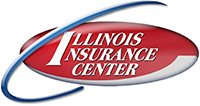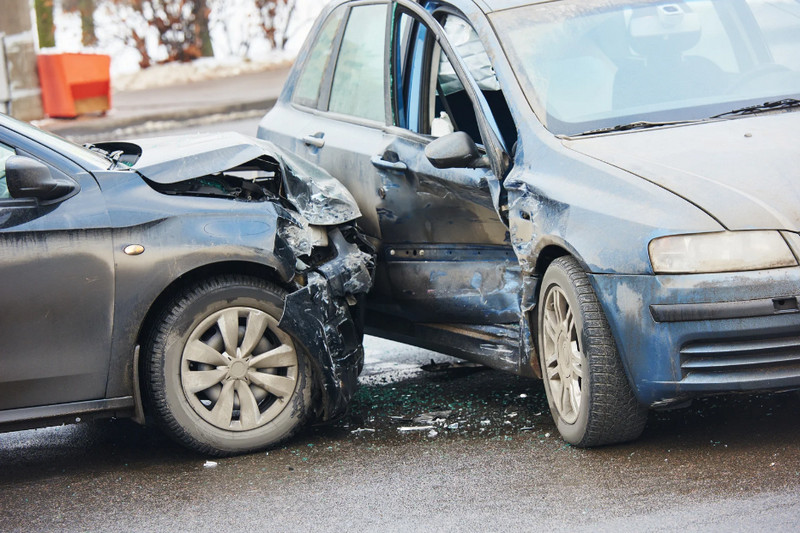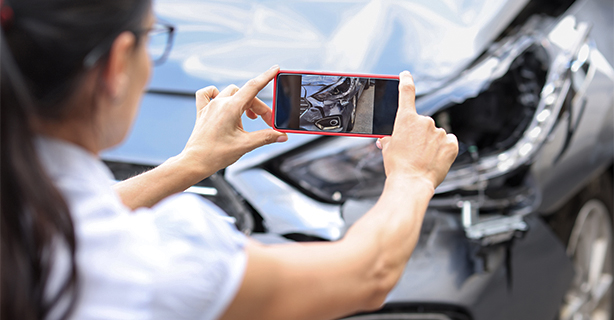If you’ve ever asked yourself, “Who is at fault in a car accident?”—you’re not alone. This is something we at Illinois Insurance Center explain to clients every single day. Understanding how the court decides fault can help you prepare better and protect yourself—especially when it’s time to file a claim or buy the right insurance coverage.
What Does “At Fault” Mean in a Car Accident?
Let me walk you through this as if we’re sitting at my desk. When someone is “at fault” in a crash, it means the court believes their actions caused the accident. This might seem clear if someone runs a red light, but it gets tricky fast. That’s where courts—and sometimes insurance companies—step in to sort things out.
If you’re wondering how to protect yourself legally and financially, knowing who is at fault in a car accident can be the difference between a smooth claims process and months of stress.
How Courts Decide Who Is at Fault in a Car Accident
Courts look at several things to figure out who’s to blame. This isn’t just guesswork. Judges and insurance adjusters use facts and legal rules.
They consider:
✅ Police Reports – These often play a big part. They include facts, diagrams, and sometimes even the officer’s opinion. If someone got a ticket, that’s important.
✅ Witness Statements – Courts rely on people who saw what happened. Eyewitnesses can confirm—or contradict—what each driver says.
✅ Traffic Laws – If you broke a rule, that’s usually a strong sign you’re at fault. Running a stop sign, speeding, or not using signals can all count against you.
✅ Video or Photo Evidence – Dashcams, surveillance cameras, or smartphone photos can paint a clear picture of what really happened.
✅ Vehicle Damage – Sometimes, how and where the cars are damaged tells a story. Courts look at impact points to figure out who hit who and from where.
What Does “Comparative Fault” Mean?
Illinois uses something called “comparative fault.” Here’s how I explain it to my clients: You and the other driver can share the blame. If you’re less than 50% at fault, you can still collect some damages—but your payment gets reduced based on your share.
So if you’re found 30% responsible, and your total damages are $10,000, you’d get $7,000.
This rule gives more people a fair shot at recovering something, even if they made a mistake.
Why Does Fault Matter for Insurance?
It matters a lot—especially if you’re relying on your auto coverage. If you caused the crash, your liability coverage usually kicks in. But if someone else caused it, their insurance should pay for your damages.
That’s why we always recommend having solid coverage—not just the minimum. If you’re a business owner driving for work, you might need commercial auto insurance. Personal policies won’t cover business trips in many cases.
If you live in Chicago, IL, where traffic can be tight, or Aurora, IL, with plenty of suburban traffic, good insurance coverage can make all the difference.
How Insurance Companies Decide Fault
While courts can decide who is at fault in a car accident, insurance companies often make their own decision first. They assign adjusters to look at the same things we mentioned earlier—photos, police reports, and so on.
If both drivers disagree, it may lead to a lawsuit. But many cases settle before they ever reach a courtroom.
Sometimes, the insurance company assigns a percentage of blame to each driver, just like a judge would. They may even deny a claim if they think their client wasn’t at fault.
Common Scenarios: Who’s Usually at Fault?
Let’s break down a few examples we get questions about every day:
✅ Rear-End Collisions – The rear driver is almost always at fault. Courts assume they were following too closely or not paying attention.
✅ Left-Turn Accidents – The person making the left turn is often at fault unless the other car ran a light or was speeding.
✅ T-Bone at Intersections – It depends on who had the right of way. Police reports and signals are key here.
✅ Parking Lot Crashes – These can go either way. If someone was backing out and hit a moving car, they’re usually more responsible.
✅ Multi-Car Pileups – These get complicated. Courts might assign a percentage of blame to multiple drivers. That’s why clear insurance coverage is so important.
If you live in Naperville, IL, where parking lot traffic is a daily headache, we can walk you through which coverage makes sense.
What Happens If No One Admits Fault?
Sometimes, everyone involved claims they didn’t cause the crash. When that happens, it’s up to the insurance companies—or a judge—to figure it out. That’s when solid evidence really matters.
We often help clients in Joliet, IL prepare statements and gather information to support their claim. A well-documented file can tilt the decision in your favor.
Can I Be Sued If I’m Found At Fault?
Yes, you can. If someone believes you caused the crash and their insurance isn’t enough to cover everything, they can take you to court. This is why liability coverage matters.
We always encourage clients—especially contractors and small business owners—to consider contractor insurance or broader business insurance that includes commercial auto coverage. It’s not just about legal protection—it’s about peace of mind.
What Can You Do to Protect Yourself?
Here’s what we tell our clients in Rockford, IL:
✅ Buy More Than the Minimum Coverage – The state minimum might not cover your losses, especially if someone sues.
✅ Keep a Dashcam – Video evidence can quickly settle disputes.
✅ Call the Police at the Scene – Always ask for a police report. It helps back up your version of events.
✅ Take Pictures – Snap everything—license plates, traffic lights, skid marks, injuries, vehicle positions.
✅ Talk to Us – We’re here to help you understand your policy, upgrade your coverage, or file a claim.
Other Policies That Can Help
While you’re reviewing your car insurance, it’s also a good time to look at:
✅ Homeowners Insurance: Accidents on your property matter just as much.
✅ Life Insurance: If something happens and your family needs support, this makes all the difference.
We can bundle coverage to save you time and money. Just give us a call at (708) 524-4900 or visit our Contact Page.
FAQ: Who Is at Fault in a Car Accident?
1. What if both drivers are at fault? You can still collect damages, but they’ll be reduced based on your share of the blame.
2. Do I need a lawyer to prove fault? Not always, but in serious cases, a lawyer can help. We can point you in the right direction.
3. Can insurance companies override police reports? Yes, they can do their own investigation, but police reports still carry weight.
4. Will my rates go up if I’m not at fault? They usually don’t—but it can depend on your policy and driving record.
5. What if the other driver doesn’t have insurance? You’ll need uninsured motorist coverage. Ask us how to add that.
6. What if someone else was driving my car? Your insurance may still apply, depending on the situation. Let’s review your policy.
7. How do I prove I wasn’t at fault? Photos, witness statements, and a strong police report help a lot.
8. Can I change my insurance after an accident? You can, but it won’t apply retroactively. Better to be prepared beforehand.
9. What is no-fault insurance? Illinois isn’t a no-fault state. That means someone must be proven at fault before claims are paid.
10. Should I admit fault at the scene? No. Stick to the facts and let the evidence speak.
Final Thoughts
Figuring out who is at fault in a car accident is never easy—but you don’t have to go through it alone. At Illinois Insurance Center, we work every day to help clients just like you stay protected before, during, and after an accident.
Whether you’re in Chicago, Naperville, or Rockford, we’re here to walk you through everything you need.
Don’t wait until after a crash to review your coverage. Call us now at (708) 524-4900 or head over to our Contact Page. We’ll help you figure out exactly what you need.
See Also:
- 5 Factors That Can Affect Motorcycle Insurance Rates
- Factors That Determine the Cost of Commercial Theft Insurance
- Mexico Insurance Needed for Travel to Mexico: What You Should Know Before You Go
- Winter Motorcycle Insurance in Illinois: Liability, Coverage, and Prep Tips
- DUI Auto Insurance in Illinois: SR-22, Suspended Licenses, and Motor Vehicle Report Impact





